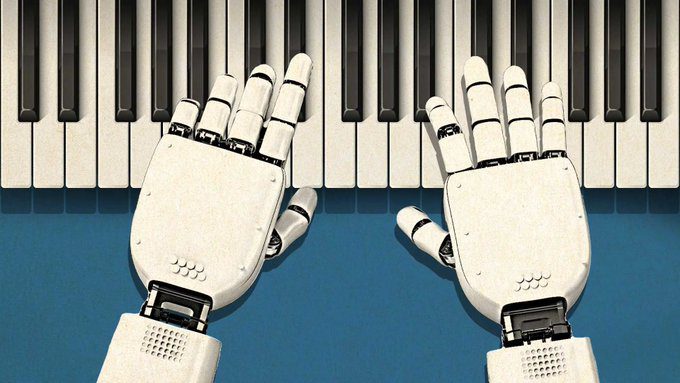AI’s Impact on the Music Industry
The music industry has been significantly transformed by the advent of artificial intelligence (AI). With the ability to create studio-quality, royalty-free music in seconds, AI has revolutionized the way music is produced and consumed. This technological advancement has raised questions about the future of the music industry and the role of human creativity in music production.
AI music creation tools, such as those developed by companies like Adobe and Suno Inc., allow users to generate and customize audio using text descriptions or reference melodies. These tools offer features like tempo control, intensity adjustment, and structure customization, enabling users to create and remix music effortlessly.

Generative AI in Music Production
Generative AI has become a prominent technology in the music industry, with startups like Beatoven.ai offering platforms for generating royalty-free background music for videos, podcasts, and games. Beatoven.ai’s platform focuses on diverse musical cultures and uses proprietary music data to ensure originality and avoid copyright infringements.
DeepMind’s V2A technology is another example of how AI is being used to generate soundtracks for videos, including music, sound effects, and dialogue. This technology claims to be unique in understanding raw video pixels and syncing generated sounds automatically.

Ethical and Legal Concerns
The rise of AI-generated music has not been without controversy. Musicians like Nicki Minaj, Billie Eilish, and Katy Perry have signed letters against irresponsible AI, expressing concerns about copyright infringement, loss of livelihood for musicians, and the potential for deepfakes and identity theft. The ethical implications of AI-generated music are still being debated, and current copyright laws may not be sufficient to address these issues.
In response to these concerns, legislation such as the ELVIS Act and the No AI Fraud Act have been introduced to protect artists’ rights and ensure fair compensation for their work. The music industry is also grappling with legal challenges, as seen in the lawsuits filed by the RIAA against generative music startups like Suno and Uncharted Labs Inc. for copyright infringement.

Future of AI in Music
Despite the challenges, the potential of AI in music creation is immense. Platforms like Popster and Korus are leveraging AI to democratize music creation, allowing artists to collaborate, remix, and share their work on social media. These platforms offer unique features like AI-assisted lyric and beat generation, and the ability to mint music as NFTs, providing new opportunities for music ownership and monetization.
As AI continues to evolve, it is likely to play an increasingly significant role in the music industry. The integration of AI in music production, distribution, and consumption will undoubtedly shape the future of music, offering both opportunities and challenges for artists, producers, and consumers alike.
Related Articles
- Make Best Music: The Ultimate AI Music Generator Tool
- Top 5 AI Tools for Songwriting
- How to Create Anything with Free AI Tools and Start Earning
- Top 5 AI Music Apps
- How Do You Generate Stories Using Online AI Tools?
Looking for Travel Inspiration?
Explore Textify’s AI membership
Need a Chart? Explore the world’s largest Charts database
